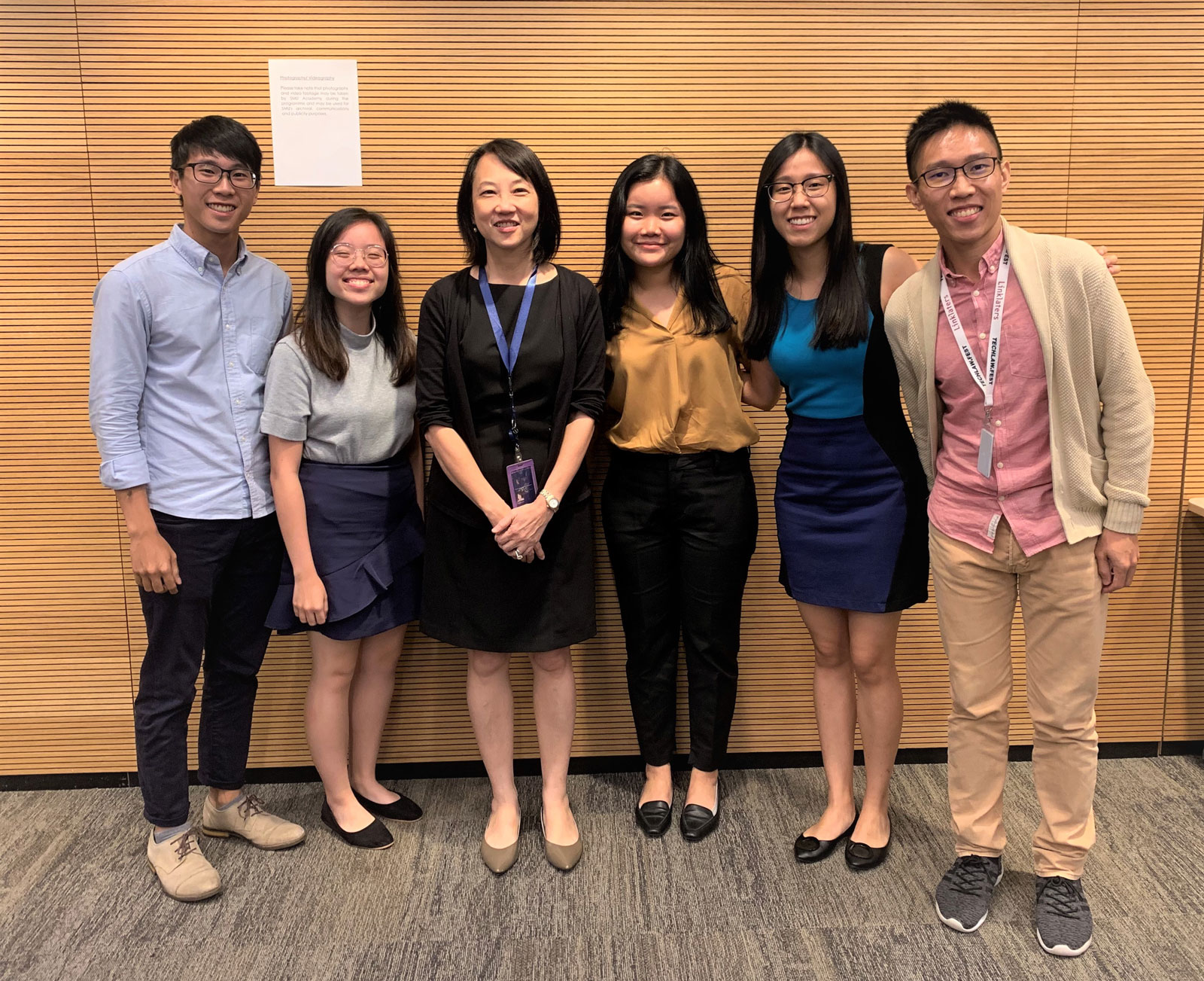Student Research Papers
In January 2019, Professor Locknie Hsu launched a new elective, Law & Digital Commerce, at the Law School. The course is taught in the SMU-X format, and students are required to actively engage with industry participants and regulators to work on real-life and cutting-edge issues in the digital commerce environment.

Left to Right: Ng Jun Xuan, Bonnita Leman, Professor Locknie Hsu, See Too Hui Min, Tan Hui Xin, Dylan Mah Hon Sen
Students worked in groups to produce research papers with impactful recommendations. In the inaugural run of this course, one group did particularly excellent work on the question of whether and how Singapore’s conveyancing system might benefit from the use of blockchain technology. They had the unique opportunity to discuss and test their ideas with senior officers from the Singapore Land Authority and the legal profession.
Read their paper and recommendations here.
Note: This is a piece of student research work and does not constitute legal advice. Readers should do their own due diligence and check any references for updates and accuracy